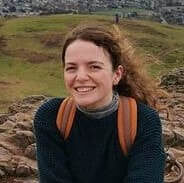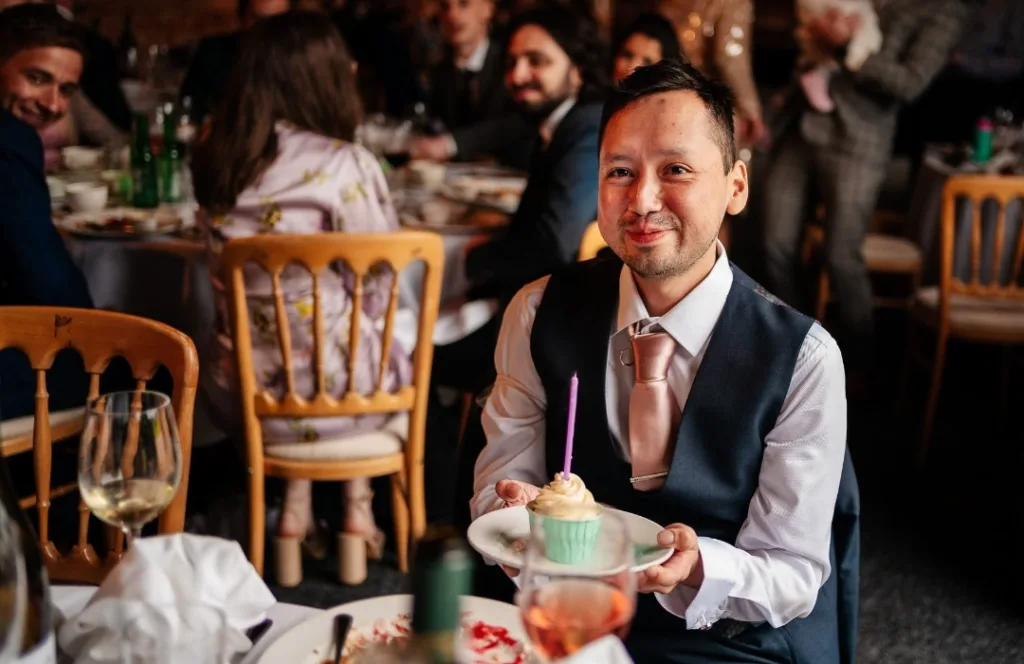‘Grief is like the ocean; it comes in waves ebbing and flowing.
Sometimes the water is calm, and sometimes it is overwhelming.
All we can learn to do is swim.’
– Vicki Harrison
Experiencing Loss
At the beginning of December 2023, my dear cousin passed away. Tommy (pictured above) was one of my first friends in this world, a confidant, and someone I thought I would share all my major life events with. I am so blessed to have had him in my life. However, his passing has left me with a void that I cannot fill. Doing a PhD is difficult at the best of times, yet navigating this process while coming to terms with my grief has been challenging.
I chose the opening quote by Vicki Harrison for this article because it resonates the most with how I have been describing my grief to close friends and colleagues. Whenever I was asked how I was feeling, my default answer was, ‘the grief comes in waves’. This past month, my days have been spent oscillating between feeling numb and becoming overwhelmed by the crushing realisation that I will never be seeing my loved one again. As such, I made the difficult decision to step away from the PhD.
Pressing Pause
Pressing ’pause’ on my PhD to take time to grieve with my family, although the right decision, still came with its own set of challenges. The anxiety and depression that naturally occur during bereavement were exacerbated by intrusive thoughts that I was losing precious time that I needed to be putting towards my research project. My nights became sleepless as I lay in bed for hours on end, thinking not only of Tommy but also of questions about how to get back to my life at university when I returned in the new year. So, I did what I have spent the last two years of my life doing… I researched.
Initially, I believed that spending hours researching grief was my way of attempting to comprehend the rollercoaster of emotions that I was experiencing. I hoped that with greater understanding, I would be better able to manage it. Upon reflection, I now realise that trying to rationalise my feelings was a way of forcing myself back to work and serving as a distraction from processing my grief. I was trying to avoid accepting Tommy’s passing in the hope that one day, someone would come to me and say that this was all just some terrible misunderstanding and that he was still here.
Returning to Research and Practicing Patience
Grief is a personal journey, and its length, intensity, and triggers vary from person to person. Returning to university life was incredibly difficult, and my first day back in my office was mostly spent crying. Doing a solo research project meant spending hours at a time trying to engage with my readings critically, yet my mind wandered to thinking of Tommy and just how much I missed him. I am still learning to be patient with my grief and allow myself the time and space to come to terms with my loss. I have slowly but surely learnt to allow myself days where work will not happen and accept it. Although for some, getting back to work and trying to live life as ‘normal’ as possible after a loss is beneficial, for me personally, it made me feel worse.
Although seeing people again after my time away was difficult, ultimately, talking to others has been helpful. I am very fortunate to have a supportive network of friends in my PhD cohort and beyond the university who understood when I did not want to reply to their messages or when I needed a space to talk through my feelings. They have even been patient enough with me to rehear the same stories about Tommy I repeatedly tell, as I like to remind myself of all the great times we shared together. I cannot thank them enough for all their love and compassion during this difficult time; without them, I would have remained lost.
A Final Message: Learning to Grow Around the Grief
I want to finish with one useful piece of information from my bereavement research that I think is worth sharing. The ‘Growing Around the Grief‘ model created by grief counsellor Lois Tonkin has helped me understand that although my grief will never go away, my life will grow around my grief. I am slowly learning to live with my grief and allow my life to grow around it, acknowledging the opportunity for growth and healing.
I know that Tommy would not want me to stop chasing my dreams and cease living my life to its fullest. While he is not here in person to enjoy all that life brings, I am finding solace in the thought that he is watching over me, supporting me every step of the way.




